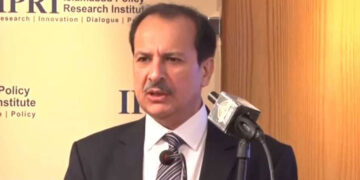Workers mental fitness is rapidly coming to be a primary question for corporations as they strive to hold on to employees through the pandemic.
Why does it matter? The companies that ignore mental fitness are steadied to achieve the battle for skills. “These days there are employee shortages throughout,” says Chris Swift, CEO of The Hartford, a monetary services and insurance firm. Mental fitness is a heavy contributor to that, he explains.
What’s happening? The epidemic has dragged on, and people are handling even more casualty and privacy — at the exact moment that America’s opioid problem has gotten nastier. Burnout and obsession are trickling into the workplace. Even though we’ve gotten used to pandemic-era occupancy, workplace burnout is soaring. 44% of employees announce they are tired out on the chore, up from 34% in 2020, per research performed by the human resources consulting corporation Robert Half.
Narcotic overdose deaths tapered 30% in 2020 — to approximately 100,000 — and the majority were opioid overdoses, as per Bloomberg announcements. The casualties and drug habits are endorsing the all-around employee scarcity. And it certainly damages workplaces.
A whopping 52% of U.S. employers explain they are “experiencing considerable workplace problems” with material misuse or dependency by employees, according to a current survey from The Hartford. That’s up from 36% in March 2020. 31% of U.S. employers say workforce mental fitness is having a drastic or substantial monetary effect on the corporation, up from just 20% in March 2020.
Employers can assist by giving resources, like mental fitness days and online medication tours. Nonetheless, leading executives must also take advantage of a pivotal position, experts explain. Executives should regularly check in with employees and should themselves be accountable for facilitating an atmosphere in which employees feel safe communicating subjective dilemmas, Kelly Greenwood and Natasha Krol of the department of mental health advocacy nonprofit Mind Share Partners explained in the Harvard Business Review.
But, helping employees is not so easy. 72% of U.S. employers say remorses related to mental health and dependence are resisting employees from pursuing aid, per Hartford’s research. The excess we speak about, the rapidly the stigma goes away, Swift says.
As workforces evolve to remote or hybrid, it’ll be even more crucial for executives to check in on workers’ mental fitness, says Bryan Hancock, who oversees McKinsey’s global talent strategy. Absent opportunities at the water cooler, we can slide into the tradition of only debating work topics with friends. Executives will have to explicitly schedule time with their hireling to inquire how they’re performing.
Mental or emotional fitness pertains to your all-around psychological well-being. It can encompass the means you know about yourself, the integrity of your friendships and your capacity to govern your emotions and negotiate with problems. Mental health and physical health are very approximately attached. Mental fitness plays a crucial part in your proficiency to conserve promising physical health. Mental disorders, such as pessimism and uncertainty, influences your capacity to partake in active behaviours. This can arise in difficulties with physical fitness, such as chronic illnesses, and can lessen a person’s capacity to contribute to therapy and healing.
Problems with mental fitness can have numerous distinct indications, just like problems with physical health. Topics can be inquired and examinations can be performed to enable appraisal of mental fitness, the same as with biological health. For biological problems, most people go to the physician and get a check-up. They have their blood pressure, temperature and weight assessed. They have blood brought out to test for problems with cholesterol, blood sugars, thyroid, iron levels, electrolytes and additional problems.
Nevertheless, most people don’t go to a mental health expert or professional for a mental fitness exam. In several cases, people only seek out a mental health professional after a catastrophe has happened. For decades, people were warned to shake it off or toughen up — to set aside the suspicion, or the miseries, and concentrate on the chore at hand: winning. subjugating. Earning it or getting it achieved.
The world is full of these examples and recently Olympians prove it. They shed a light on how the world should focus on mental health as well. For years, Simone Biles was one of the very promising players. Unexpectedly — to some, shockingly — she concluded she wasn’t in the right headspace.
By tugging on her white sweatsuit amidst Tuesday dusk’s Olympic gymnastics match, and by accomplishing it with a gold medal hanging in the proportion, Biles might very well have redefined the cognitive fitness conversation that’s been running through athletics for the preceding years.
Michael Phelps, champion of a record 23 gold medals and now resigned have long been clear about his mental fitness battles. Phelps has said he pondered suicide after the 2012 Olympics while wracked with sadness. Now a critic for NBC’s swimming content, he said seeing Biles battle “broke my heart.”
“Mental fitness over the last 18 months is something people are discussing,” Phelps said. “We’re human beings. Nobody is flawless. So yea, it is OK not to be OK.”Biles meets some other high-profile athletes in the Olympic room — overwhelmingly females — who have been conversing sincerely about an issue that had been forbidden in athletics for apparently forever.
Tennis player Naomi Osaka rescinded from the French Open, never got on to Wimbledon and, after her initial departure in Tokyo, this week acknowledged that the Olympic cauldron was a little too much to deal with.
American sprinter Sha’Carri Richardson brought about no mystery of the problems she confronted as she readied for an Olympic journey that never occurred. She announced she used marijuana to support her in disguising the discomfort of her delivery mama’s demise, to say nothing of the anxiety of the 100 meters.


























